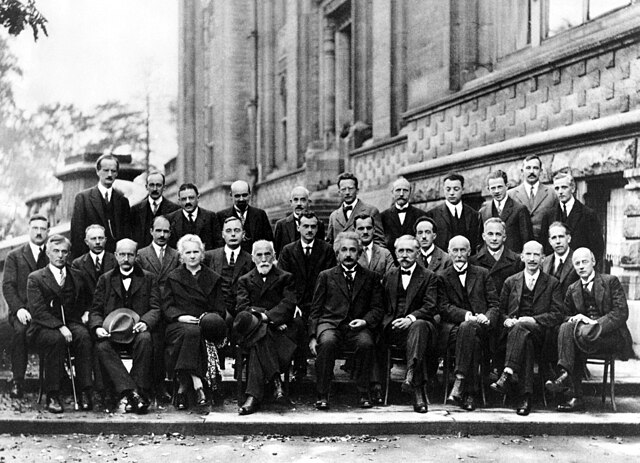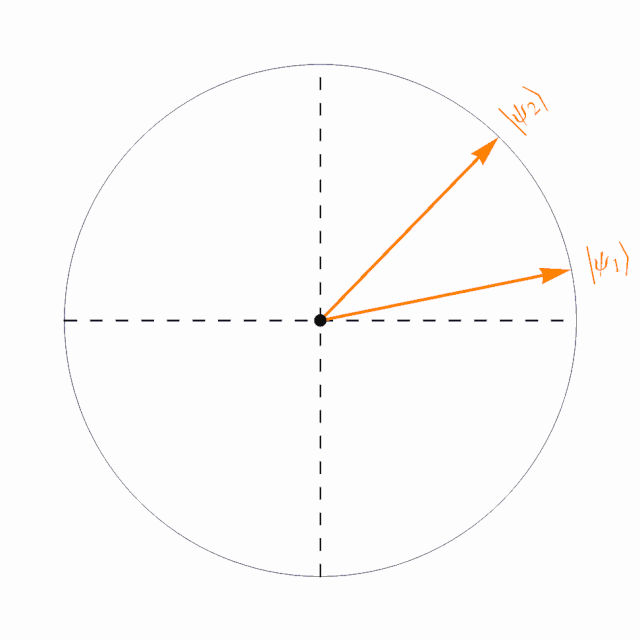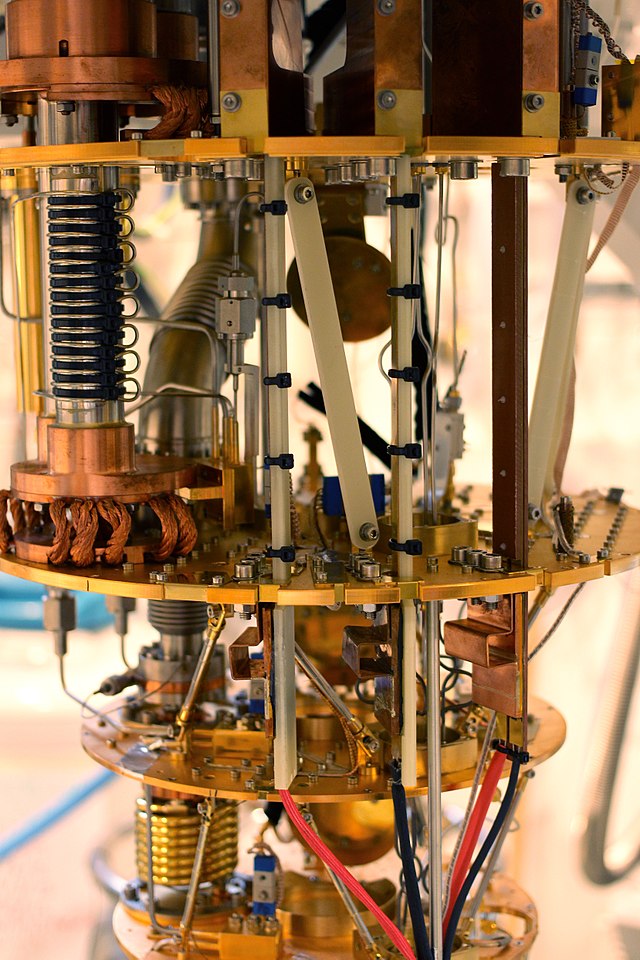Become the best Quantum Programmer

Table of Contents
In the vast expanse of the technological landscape, one realm stands out as both enigmatic and promising – Quantum Computing. It is the embodiment of scientific marvels, promising a revolution in computation that transcends the limitations of classical computing. As we delve into the intricacies of this frontier, one cannot overlook the pivotal role of Quantum Programming, the language that unlocks the potential of these quantum machines.
Quantum Computing operates on the fundamental principles of quantum mechanics, a branch of physics that describes the behavior of matter and energy at the smallest scales. At the core of quantum computing lies the quantum bit or qubit, the quantum analog of the classical binary bit. Unlike classical bits, which can only exist in states of 0 or 1, qubits can exist in a superposition of both states simultaneously, owing to the principles of quantum superposition. This property exponentially increases the computational power of quantum computers, enabling them to perform complex calculations at unparalleled speeds.
Quantum Programming emerges as the bridge between human intellect and quantum machines, enabling us to harness the raw potential of quantum computing. Unlike conventional programming paradigms, Quantum Programming operates in the domain of quantum mechanics, necessitating a paradigm shift in the way algorithms are formulated and executed.
One of the foundational concepts in Quantum Programming is quantum entanglement, a phenomenon where qubits become correlated to each other in such a way that the state of one qubit instantaneously influences the state of another, regardless of the distance between them. This property forms the basis of quantum algorithms, allowing for the development of novel approaches to problem-solving, such as Shor’s algorithm for integer factorization and Grover’s algorithm for database search, which showcase the inherent superiority of quantum computation in certain tasks.
Another key concept in Quantum Programming is quantum parallelism, which exploits the ability of qubits to exist in multiple states simultaneously. This parallelism enables quantum algorithms to explore multiple solutions to a problem simultaneously, vastly outperforming classical algorithms in certain computational tasks.
However, Quantum Programming also poses unique challenges. Quantum systems are highly sensitive to noise and errors, leading to the phenomenon of decoherence, where quantum states degrade over time due to interactions with the environment. Quantum programmers must develop techniques to mitigate these errors through error correction codes and fault-tolerant algorithms, ensuring the reliability and robustness of quantum computations.
As we stand on the brink of a new era in computing, Quantum Programming represents not only a technological advancement but a paradigm shift in our understanding of computation itself. It challenges us to rethink the very fabric of reality and explore the mysteries of the quantum realm. With each line of code, we embark on a journey into the unknown, pushing the boundaries of human knowledge and endeavoring to unlock the full potential of the quantum leap in computing.
Understanding Quantum Computing
In the labyrinthine world of quantum mechanics lies the key to a computational revolution – Quantum Computing. It’s a realm where the ordinary rules of classical physics blur, giving rise to mind-bending phenomena and unparalleled computational power. To comprehend this frontier, we must embark on a journey through the mysteries of quantum mechanics, unraveling the enigmatic nature of quantum bits (qubits), and deciphering the language of Quantum Programming through quantum gates and circuits.
Quantum mechanics, the cornerstone of Quantum Computing, defies the intuitions of classical physics. At its heart lies the concept of superposition, where quantum entities like particles or qubits can exist in multiple states simultaneously. This property forms the bedrock of quantum computation, allowing qubits to encode and process vast amounts of information in parallel, leading to exponential computational speedups over classical systems.
Quantum Bits, or qubits, serve as the building blocks of quantum computation. Unlike classical bits, which are bound to either a 0 or 1 state, qubits can exist in a superposition of both states simultaneously. This superposition endows qubits with immense computational power, enabling quantum computers to explore a multitude of solutions to a problem simultaneously, revolutionizing the landscape of computation.
However, the true magic of Quantum Computing unfolds through the manipulation of qubits using Quantum Gates and Circuits, the language of Quantum Programming. Quantum gates are the quantum analogs of classical logic gates, operating on qubits to perform specific quantum operations. These operations include rotations, flips, and entanglement, each playing a crucial role in quantum algorithms and computations.
Quantum circuits, composed of interconnected quantum gates, orchestrate the intricate dance of qubits, guiding them through a choreographed sequence of operations to execute quantum algorithms. These circuits encode the essence of Quantum Programming, translating abstract mathematical concepts into tangible quantum operations, and unlocking the computational potential of quantum computers.
Quantum Programming is not without its challenges.
Quantum systems are inherently fragile, susceptible to noise, decoherence, and errors that can disrupt quantum computations. Quantum programmers must navigate this treacherous landscape, devising error-correction techniques, fault-tolerant algorithms, and quantum error correction codes to ensure the reliability and accuracy of quantum computations.
In the quest to understand Quantum Computing, we embark on a journey through the quantum realm, where the laws of classical physics dissolve, and the mysteries of the quantum universe unfold. Through the language of Quantum Programming, we harness the power of quantum mechanics, unlocking the potential of quantum bits and circuits to redefine the boundaries of computation and propel humanity into a new era of technological innovation.
Bridging Classical and Quantum Worlds
In the ever-evolving landscape of programming, a new frontier emerges – Quantum Programming. It stands as a testament to the convergence of classical and quantum worlds, challenging traditional paradigms and offering new perspectives on problem-solving through quantum algorithms and simulation. To grasp the essence of Quantum Programming, we delve into the foundational concepts that underpin this revolutionary field.
Classical vs. Quantum Programming Paradigms:
Classical programming operates within the confines of deterministic logic, where algorithms progress sequentially, executing instructions one after another. In contrast, Quantum Programming transcends classical boundaries, harnessing the principles of quantum mechanics to manipulate qubits and explore multiple computational paths simultaneously. This paradigm shift introduces novel concepts such as superposition, entanglement, and quantum parallelism, redefining the very nature of computation and opening doors to unprecedented computational power.

Quantum Algorithms: Shifting Perspectives on Problem Solving: At the heart of Quantum Programming lies the art of crafting quantum algorithms – algorithms tailored to exploit the unique properties of quantum systems. These algorithms challenge traditional notions of problem-solving, offering exponential speedups for certain computational tasks. Shor’s algorithm, for example, revolutionizes integer factorization, threatening classical encryption methods with its ability to efficiently factor large numbers. Grover’s algorithm, on the other hand, transforms database search, showcasing the inherent advantage of quantum parallelism in exploring vast solution spaces. As quantum algorithms continue to evolve, they reshape our understanding of computational complexity, offering new avenues for tackling previously intractable problems.
Quantum Simulation, replicating Nature’s Complexity:
Beyond problem-solving, Quantum Programming unlocks the power of quantum simulation, allowing us to replicate the intricacies of natural phenomena with unprecedented fidelity. Quantum simulators emulate complex quantum systems, providing insights into quantum materials, chemical reactions, and biological processes that defy classical simulation methods. From modeling the behavior of electrons in superconductors to predicting the behavior of molecules in drug design, quantum simulation promises to revolutionize fields ranging from materials science to pharmaceuticals, offering a glimpse into the inner workings of the quantum universe.
As we navigate the foundations of Quantum Programming, we embark on a journey into uncharted territory, where the rules of classical computation no longer apply, and the mysteries of the quantum realm beckon. Through quantum algorithms and simulation, we push the boundaries of problem-solving, paving the way for a future where quantum computers unravel the complexities of nature and empower humanity to tackle challenges once deemed insurmountable.
Tools and Technologies in Quantum Computing
In the ever-expanding universe of quantum computing, a myriad of tools and technologies have emerged, empowering enthusiasts and researchers alike to delve into the depths of this transformative field. From quantum programming languages to development kits and quantum hardware, each component plays a vital role in facilitating hands-on exploration and innovation in quantum computation.
Quantum Programming Languages: From Qiskit to Cirq Quantum programming languages serve as the gateway to quantum computation, providing developers with the means to express algorithms and interact with quantum hardware. Among the notable languages are Qiskit, developed by IBM Quantum, and Cirq, pioneered by Google Quantum AI. Qiskit offers a high-level, Python-based interface, making quantum programming accessible to a wide audience and providing comprehensive libraries for quantum algorithm design and execution. On the other hand, Cirq boasts a more low-level approach, offering fine-grained control over quantum circuits and enabling developers to experiment with advanced quantum operations and optimizations. These languages, along with others like Quipper and Q# (Microsoft Quantum Development Kit), democratize quantum programming and foster a vibrant community of quantum enthusiasts and researchers worldwide.
Quantum Development Kits: Enabling Hands-On Exploration Quantum development kits (QDKs) provide a suite of tools and resources for hands-on exploration and experimentation in quantum computing. These kits typically include simulators for quantum circuit simulation, quantum compilers for optimizing quantum code, and interfaces for interacting with quantum hardware. IBM Quantum Experience and Google Quantum Computing Playground are exemplary QDKs that offer intuitive interfaces for designing and simulating quantum circuits, allowing users to gain insights into quantum phenomena and algorithms without the need for physical quantum hardware. Furthermore, these platforms often provide educational resources, tutorials, and community forums, fostering learning and collaboration among quantum enthusiasts of all skill levels.
Quantum Hardware: Navigating the Landscape of Quantum Processors At the heart of quantum computing lies quantum hardware – physical devices capable of manipulating and measuring qubits. Quantum processors, such as IBM Quantum’s Q System One and Google’s Sycamore, represent the pinnacle of quantum engineering, boasting impressive qubit counts and coherence times. These devices harness superconducting circuits, trapped ions, and other exotic phenomena to create and control qubits, paving the way for practical quantum computation. However, navigating the landscape of quantum hardware presents unique challenges, including qubit connectivity, error rates, and calibration complexity. As quantum hardware continues to evolve, researchers strive to overcome these challenges and unlock the full potential of quantum computing for real-world applications.
In the realm of quantum computing, tools and technologies serve as the bedrock of exploration and innovation, empowering enthusiasts and researchers to push the boundaries of what’s possible. From quantum programming languages and development kits to quantum hardware, each component plays a crucial role in democratizing quantum computation and propelling humanity towards a future where quantum technologies revolutionize the world.
Navigating Challenges and Charting Future Directions in Quantum Computing

As quantum computing continues to march forward, it encounters a myriad of challenges on its path to revolutionize the world of computation. From the fundamental issue of quantum noise to the integration of classical and quantum systems, and the exploration of quantum programming beyond traditional computing applications, the future of quantum computing is ripe with both obstacles and opportunities.
Overcoming Quantum Noise: The Quest for Scalable Quantum Computing One of the foremost challenges in quantum computing is mitigating the disruptive effects of quantum noise. Quantum systems are inherently fragile, susceptible to environmental disturbances that can introduce errors and degrade the fidelity of quantum computations. Researchers are actively pursuing techniques such as error correction codes, fault-tolerant algorithms, and decoherence mitigation strategies to combat quantum noise and pave the way for scalable quantum computing. By enhancing qubit coherence times, reducing error rates, and improving fault tolerance, scientists aim to realize the full potential of quantum computers and unlock their transformative power across various domains.
Bridging the Gap: Integrating Classical and Quantum Systems While quantum computing holds immense promise, its seamless integration with classical computing systems remains a formidable challenge. Bridging the gap between classical and quantum worlds requires the development of hybrid computing architectures that leverage the strengths of both paradigms. Hybrid quantum-classical algorithms, such as variational quantum algorithms and quantum-classical optimization techniques, serve as stepping stones towards this integration, enabling classical computers to orchestrate and interface with quantum computations effectively. By establishing robust communication protocols, optimizing resource allocation, and harmonizing classical and quantum software stacks, researchers strive to create synergistic computing ecosystems that harness the combined power of classical and quantum systems.
Quantum Programming Beyond Computing: Applications in Finance, Healthcare, and More Beyond the realm of traditional computing, quantum programming holds the potential to revolutionize a myriad of industries, including finance, healthcare, materials science, and beyond. Quantum algorithms for portfolio optimization, risk analysis, and option pricing promise to revolutionize financial markets, offering unprecedented speedups and insights for decision-makers. In healthcare, quantum computing holds the promise of accelerating drug discovery, optimizing treatment plans, and deciphering the complexities of biological systems with unparalleled precision. Moreover, quantum programming techniques such as quantum machine learning and quantum-inspired optimization algorithms are poised to transform industries ranging from logistics and supply chain management to cybersecurity and telecommunications. As quantum programming matures and quantum hardware advances, the horizon of possibilities expands, heralding a future where quantum technologies drive innovation and reshape the fabric of society.
In the face of these challenges and opportunities, the future of quantum computing is both exciting and uncertain. However, with continued research, collaboration, and innovation, we are poised to overcome obstacles, unlock new frontiers, and harness the full potential of quantum computing to tackle some of the most pressing challenges facing humanity.
Become a Quantum Programmer
Becoming a Quantum Programmer is an exciting journey into the cutting-edge realm of quantum computing, where traditional boundaries of computation blur, and new frontiers of exploration unfold. To embark on this journey, one must navigate a path rich with learning resources, hands-on practice, and active participation in the vibrant quantum community.
Learning Resources and Educational Pathways The first step towards becoming a Quantum Programmer involves immersing oneself in learning resources and educational pathways tailored to quantum computing. Numerous online courses, tutorials, and textbooks offer comprehensive introductions to quantum mechanics, quantum algorithms, and quantum programming languages. Platforms like IBM Quantum Experience, Microsoft Quantum Development Kit, and Google Quantum Computing Playground provide interactive learning environments where aspiring quantum programmers can experiment with quantum circuits, execute quantum algorithms, and gain hands-on experience with real quantum hardware. Additionally, academic institutions and research organizations offer specialized degree programs and workshops in quantum computing, providing structured pathways for formal education and research in the field.
Hands-On Practice: From Quantum Circuits to Quantum Algorithms Building proficiency as a Quantum Programmer requires hands-on practice with quantum circuits, algorithms, and programming languages. Quantum simulators and development kits offer invaluable tools for exploring quantum phenomena, designing quantum circuits, and implementing quantum algorithms. By experimenting with quantum gates, measuring qubits, and analyzing quantum states, aspiring quantum programmers develop intuition and expertise in quantum mechanics and quantum computation. Moreover, tackling real-world problems through quantum programming challenges and hackathons provides opportunities to apply theoretical knowledge to practical problems, fostering creativity, problem-solving skills, and collaboration within the quantum community.
Joining the Quantum Community: Collaborating and Innovating in the Field Active participation in the quantum community is essential for aspiring Quantum Programmers to collaborate, share ideas, and innovate in the field. Quantum forums, online communities, and social media platforms serve as hubs for networking, knowledge exchange, and collaboration among quantum enthusiasts, researchers, and industry professionals. Engaging in discussions, attending conferences, and contributing to open-source quantum software projects enable aspiring quantum programmers to stay updated on the latest developments, connect with experts, and make meaningful contributions to the advancement of quantum computing. By joining forces with like-minded individuals and embracing a culture of openness, curiosity, and collaboration, aspiring Quantum Programmers can play a pivotal role in shaping the future of quantum computing and unlocking its transformative potential.
In summary, becoming a Quantum Programmer is a journey filled with learning, exploration, and collaboration. By leveraging learning resources, engaging in hands-on practice, and actively participating in the quantum community, aspiring quantum programmers can embark on a path of continuous growth, discovery, and innovation in the fascinating realm of quantum computing.
